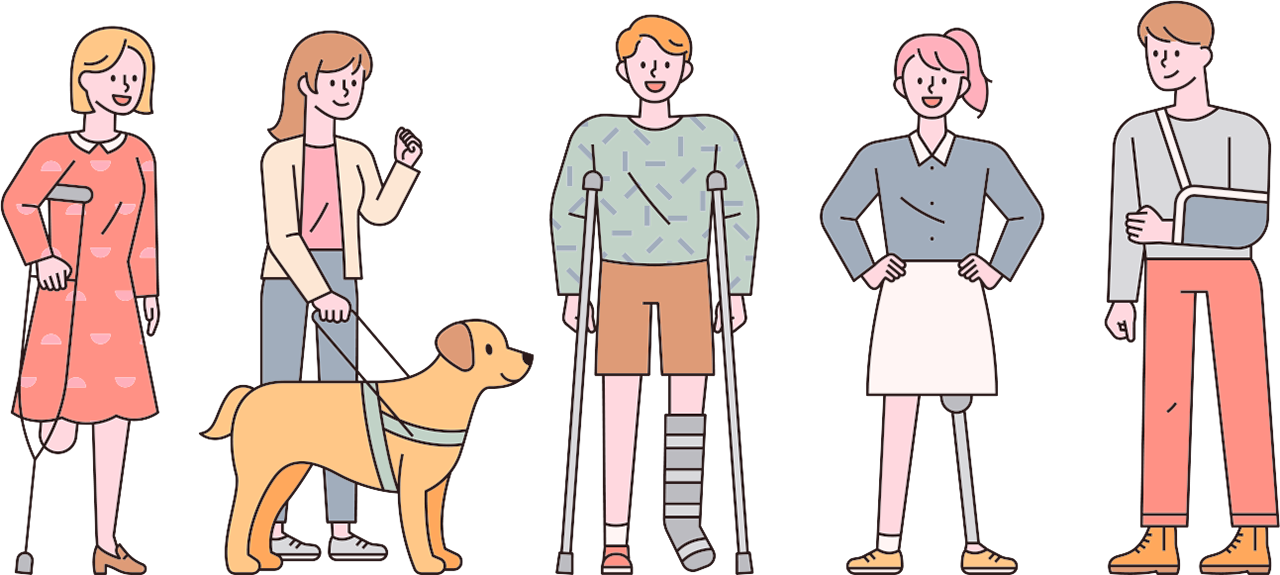
Borderline intelligent people, also known as slow learners, are people with an intelligence quotient (IQ) between 71 and 84 who do not have an intellectual disability, but have difficulties with learning and social life. Slow learners often have multiple learning disabilities, and the learning disabilities they develop in childhood or adolescence can persist into adulthood, and people with adult learning disabilities often have great difficulty finding employment or adjusting to the workplace. There are approximately 900,000 young adult slow learners in Korea.
Characteristics of borderline intelligent people
Borderline intelligent people do not experience a decline in physical development, but they have difficulty learning or using listening, speaking, reading, writing, or calculating and reasoning skills. Because the degree of difficulty varies from person to person, it is often difficult for others to understand their symptoms and they are often misunderstood as not trying hard enough, not studying enough, or being lazy.

Difficulties at work and how to cope
- Not understanding written instructions and repeating mistakes.
People with learning disabilities, especially reading disabilities like dyslexia, may not understand what is being communicated through text, such as email or chat.
• If you receive written instructions, make sure they make sense to you.
• Explain your condition so that you receive instructions verbally rather than in writing from the start.
• Use text-to-speech software on your tablet or PC, etc.
- Take time to read materials and long emails.
For people with learning disabilities, reading long texts can be time-consuming and can lead to mistakes, such as skipping sentences.
• Use a highlighter or a saucer to break up reading between lines.
• If you can record conferences and meetings, ask permission and listen back after recording.
• Use marking to convey important parts of an email or written document.
- Have difficulty calculating amounts, etc.
People with learning disabilities, especially dyscalculia, can struggle when they need to make quotes, calculate amounts, etc. at work.
• Set up functions in advance to calculate automatically when you enter numbers in Excel, or write your own manuals.
How borderline intelligent people can keep working
- You need to say what you’re not good at at work.
There’s no need to be ashamed or hide what you’re not good at – there are some tasks and jobs that aren’t for everyone. Even slow learners have different levels and speeds of understanding, so it’s a good idea to share this upfront in the workplace and agree on the scope of work you can handle.
- Find a job that fits your personality.
A workplace that works for a slow learner is one that doesn’t overwhelm them with tasks in areas they are not good at. If someone who struggles with reading and writing is assigned a job that requires them to read or send a lot of mail, they will feel overwhelmed and stressed.
- create a manual on reporting procedures and communication.
If you have people in your organization with learning disabilities, it’s a good idea to create a manual or set rules for reporting and communication. It’s important to communicate verbally as much as possible if written communication is difficult to understand, and to consult with them beforehand to clarify the scope of their work.




